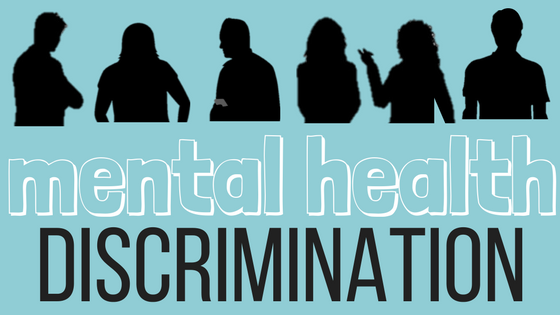So far in 2018, 34 mass shooting incidents have occurred in the United States, according to data from the gun violence archive. This unsettling statistic has caused a general unrest in the country, and many people have scapegoated mental illness to provide an answer to this issue.
However, the statistics on mental illness and the United States’ levels of mass shootings do not match up. Relatively, the number of people living with mental illness in the U.S. is equal to that of other prosperous countries around the world. But there are significantly many more mass shootings in the U.S. than anywhere else on the globe.
Additionally, an academic study in 2016 found that only 4% of violence was caused by mental illness alone. Using mental illness as an excuse for the high mass shooting rates in the United States is incorrect and contributes to the frequency of discrimination toward people with mental illness.
Not only are mental illness and violence not directly related, but people with mental illness are more likely to be victims of violent situations. In fact, people living with mental health illnesses are 10 times more likely to be the victim of a violent crime.
When people with mild to serious mental illness do not receive treatment, they can quickly become ostracized from others, unemployed, and homeless. This puts people who have a mental illness, and are no more violent than those without, in risky situations.
Regarding police brutality, people with mental illness are also statistically more at risk. People with mental illness are 16 times more likely to be killed by police. Discrimination against people with mental health issues plus the lack of understanding about how to address people with mental illness contribute to these numbers. Approximately 1 in every 10 police encounters involves a person with mental illness, however many police are not properly trained on how to approach someone who’s mentally ill.
Perpetuating the falsity that people who are mentally ill are dangerous or more violent than those who do not suffer from mental illness is completely backward. This idea keeps society ignorant and biased towards the mentally ill, prevents those with mental illness from receiving the treatment they need, and puts them at a greater risk of being the victims of violence and being killed unnecessarily by police. If we, instead, disseminate the idea that the mentally ill are no more violent than anyone else and simply require some medical attention, we can begin to diminish discrimination of people with mental health issues.




 I am a senior Communications major at the University of Maryland. I am originally from Boston but have been spending most of my time in Maryland for the past three years. During my first year of my time at UMD, I was considering majoring in Early Childhood and Special Education, and thus took many classes on this topic. I learned a great deal about how individuals with mental illnesses are educated and live. Not only are adequate education strategies lacking for these individuals, but they are automatically put into categories in society based on factors that they cannot control. Additionally, my grandfather recently suffered through a battle with Alzheimer’s disease, a mental illness, for many years. My family was lucky to give him the care he needed but many people do not get this type of experience. The stigma of having a mental illness, taking care of your own mental health, and being able to openly discuss these topics is something that needs to be improved in this society.
I am a senior Communications major at the University of Maryland. I am originally from Boston but have been spending most of my time in Maryland for the past three years. During my first year of my time at UMD, I was considering majoring in Early Childhood and Special Education, and thus took many classes on this topic. I learned a great deal about how individuals with mental illnesses are educated and live. Not only are adequate education strategies lacking for these individuals, but they are automatically put into categories in society based on factors that they cannot control. Additionally, my grandfather recently suffered through a battle with Alzheimer’s disease, a mental illness, for many years. My family was lucky to give him the care he needed but many people do not get this type of experience. The stigma of having a mental illness, taking care of your own mental health, and being able to openly discuss these topics is something that needs to be improved in this society.